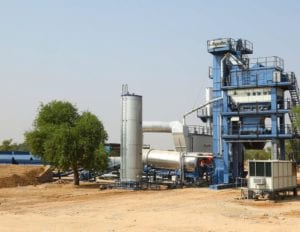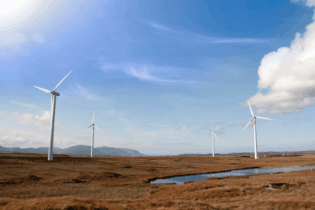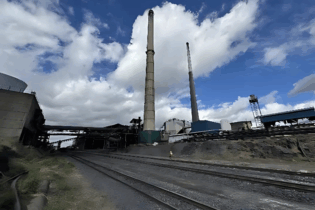Engineering projects are dependent on exact results, both at the design stage and at project implementation. When it comes to the mechanisation component, whether for asphalt, concrete or road compaction and finishing, Ammann has a no-compromise, quality solution that caters for both SME and top-tier contractors.
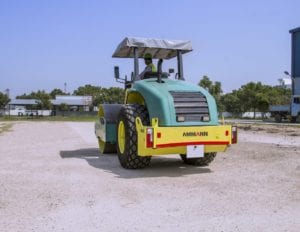 In 2019, Ammann will celebrate its 150th anniversary, a significant milestone that demonstrates the Swiss-based OEM’s ability to evolve and respond to the changing needs of the construction market. This commitment to sustained research and development (R&D) means that there’s a product solution at every stage of technological maturity in the construction sector.
“That’s an important statement to note because Ammann’s intensive approach to R&D means that every product class leads in terms of innovation, either as a high-tech solution or a slightly lower-tech and value-added option for less sophisticated and emerging sectors, so that customers have access to cutting-edge technology at the right entry point for their current and future operations,” explains Rocco Lehman, managing director of Ammann South Africa. “As businesses mature, they inevitably scale-up to the more premium range. Either way, every Ammann product is manufactured to exacting quality.”
The Ammann value-added range is particularly well-suited to African conditions in terms of high durability and efficiency, combined with competitive pricing. “South Africa and Africa definitely need a value-for-money product in these challenging economic times,” Lehman asserts.
In 2019, Ammann will celebrate its 150th anniversary, a significant milestone that demonstrates the Swiss-based OEM’s ability to evolve and respond to the changing needs of the construction market. This commitment to sustained research and development (R&D) means that there’s a product solution at every stage of technological maturity in the construction sector.
“That’s an important statement to note because Ammann’s intensive approach to R&D means that every product class leads in terms of innovation, either as a high-tech solution or a slightly lower-tech and value-added option for less sophisticated and emerging sectors, so that customers have access to cutting-edge technology at the right entry point for their current and future operations,” explains Rocco Lehman, managing director of Ammann South Africa. “As businesses mature, they inevitably scale-up to the more premium range. Either way, every Ammann product is manufactured to exacting quality.”
The Ammann value-added range is particularly well-suited to African conditions in terms of high durability and efficiency, combined with competitive pricing. “South Africa and Africa definitely need a value-for-money product in these challenging economic times,” Lehman asserts.
India factory visit
During the first quarter of 2018, Ammann South Africa led a group of local customers on a tour of the Ammann Group’s new factory in Ahmedabad, India. Lehman says the impression gained was very positive. Built at a cost of €85 million, the construction of this state-of-the-art facility follows an initial joint venture and the subsequent acquisition of leading Indian asphalt plant and road construction OEM Apollo in 2013. This was a strategic move that enabled Ammann to enter the paving segment and grow its market share from a zero base to a leadership position by 2018, currently selling between 500 and 600 Ammann pavers annually. Apollo asphalt pavers continue to dominate in India.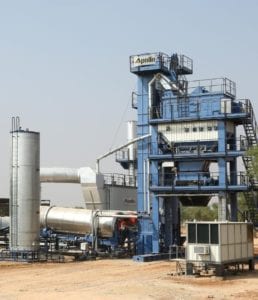 African market
African market
A targeted range of Ammann machines is supplied locally, based on current market demand. However, the full product line is available ex-factory from any of Ammann’s worldwide factories, which includes manufacturing centres in Europe, South America, India and China.
In South Africa and a growing number of African countries, the direct customer interface is via Ammann-appointed dealer ELB Equipment, which is well represented in the SADC region, as well as further afield. Major prospects in East Africa recently led to the establishment of an ELB branch in Kenya, which opens up exciting new opportunitiesfor Ammann. “Ammann Goup recognises ELB as a world-class dealer and a critical and highly effective link in the value chain,” Lehman continues. “For this reason, Ammann invests extensively in dealer training and development. In October this year, for example, we conducted detailed training with some 53 ELB sales and after-
sales personnel. This follows a similar workshop in Q4 2017. Technical excellence requires technical competency.”
Asphalt plant gains
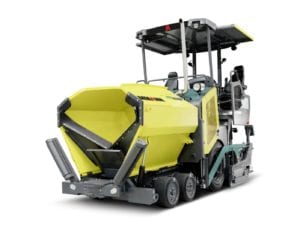 For the concrete and asphalt plant range, Ammann deals directly with the South African and African markets. Take-up in the asphalt segment has been very positive, while the roll-out of the concrete offering is still in the early stages locally.
“In South Africa, the construction sector has traditionally used dry mix concrete plants, but Ammann is focused on changing that viewpoint with the progressive introduction of its proprietary wet mix plants,” Lehman explains.
For the concrete and asphalt plant range, Ammann deals directly with the South African and African markets. Take-up in the asphalt segment has been very positive, while the roll-out of the concrete offering is still in the early stages locally.
“In South Africa, the construction sector has traditionally used dry mix concrete plants, but Ammann is focused on changing that viewpoint with the progressive introduction of its proprietary wet mix plants,” Lehman explains.Ammann’s concrete plants are a common sight on construction projects in Europe, South America and Asia. In parts of Africa where contractors do following trends adopted in Europe and China, Ammann believes that the demand for the concrete range will grow significantly, based on proven efficiencies.
Recent asphalt plant sales in Africa include the delivery of a ValueTec 140 (140 tonne capacity) to a contractor in Ghana. Another recent cross-border sale entailed the delivery of an Ammann 90 drum mix plant (90 tonne capacity) as well as two Ammann ARS122 BS III single-drum roller machines for a company in Zimbabwe. “To support our Africa drive, we have recruited new sales, product and after-sales specialists, based in Johannesburg and travelling regionally. Strategic sales, parts and product support for Africa and the Middle East region is provided by Ammann Group’s regional hub in Dubai. In South Africa, we have a multimillion rand parts inventory on hand for all immediate requirements,” says Lehman Locally, asphalt plant sales include the supply of an Ammann ValueTec 140 to Polokwane-based company MM Surfacing, which also acquired two Ammann paving trains. These comprise two AFW350 pavers, two AP240 pneumatic tyred rollers, and two AV70 tandem rollers. Benoni-based company Instant Tar also recently acquired a new Counterflow 120 plant, which expands its fleet to two, following the acquisition of a Counterflow 90 unit towards the end of 2017.
